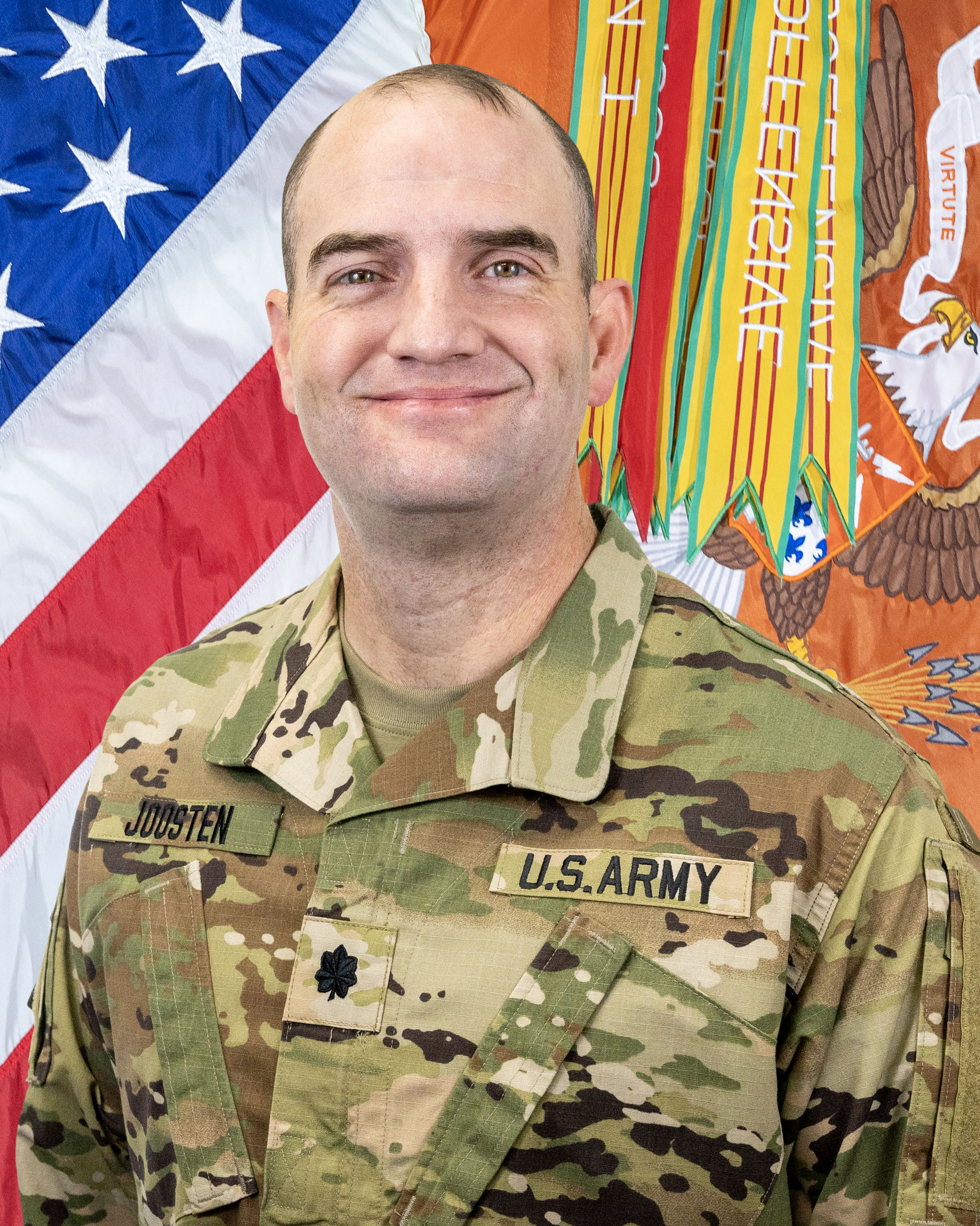
Mission
302d Signal Battalion Mission Statement: Operate, maintain and defend Department of War Information Network (DoDIN) systems and facilities in support of the President, Secretary of Defense, Joint Chiefs of Staffs, Warfighting Combatant Commanders, other Federal Agencies, and extend network and mission command capabilities to the Warfighter.
ASA-Fort Detrick Mission Statement: Operate and maintain the DES, a dual STEP facility, TCF, MET and the Battalion SYSCON in order to provide and defend DoDIN and DISN access capabilities for the President, Secretary of Defense, Joint Chiefs of Staff, Warfighting Combatant Commanders, the Military Services, and other Federal Agencies.
ASA-Fort Meade Mission Statement: Operate and maintain a dual Standardized Tactical Entry Point - Enhanced SATCOM Gateway (STEP-ESG) facility and Wideband Global SATCOM (WGS) terminals providing defense of the DoD Information Networks (DoDIN) access for the Secretary of Defense, Joint Chiefs of Staff, combatant commanders, the Military Services, and other Federal Agencies.
ASA-Camp Robert Mission Statement: Operate and maintain a Defense Teleport system, a Standardized Tactical Entry Point (STEP) facility, a Technical Control Facility (TCF), Wideband Global SATCOM (WGS) terminals, Regional Hub Node (RHN) and manage the installation facilities in order to provide and defend DoD Information Networks (DoDIN) and Defense Information Systems Networks (DISN) for the President, Secretary of Defense, Joint Chiefs of Staff, Warfighting Combatant Commanders, the military services, and other federal agencies.
ASA-Fort Bragg Mission Statement: Operate and maintain an Army Regional Hub Node (RHN) and DISN Core to provide and defend DoD Information Networks (DoDIN) access capabilities for the President, Secretary of Defense, Joint Chiefs of Staff, Warfighting Combatant Commanders, the Military Services, and other Federal Agencies.
ASA-Fort Belvoir Mission Statement: Operate and maintain a Standardized Tactical Entry Point (STEP) facility, a dual MILSTAR Command Post Terminal (CPT), a Technical Control Facility (TCF), and Wideband Global SATCOM (WGS) terminals in order to provide and defend DoW Information Networks (DoDIN) for the President, Secretary of War, Joint Chiefs of Staff, Warfighting Combatant Commanders, the military services, and other Federal Agencies.
We are the 302d Signal Battalion, "Gateway To Freedom."
History
UNIT HISTORY
Constituted on 29 July 1921 in the Organized Reserves, the 302d Signal Battalion was organized and outfitted in January 1922 at New York, New York. After the United States entered World War II, the battalion was redesignated the 302d Signal Operation Battalion on 8 December 1942, and ordered into active military service on 23 February 1943 at Camp Swift, Texas under Fifth Headquarters, Special Troops, Third Army. The battalion arrived at Avonmout, England on 9 March 1944, and was assigned to First United States Army Group (FUSAG), which was later renamed 12th Army Group under General Omar Bradley. Between D-Day and VE Day, the battalion supported the Third Army and General Patton’s dash across France, Belgium, Luxembourg and Germany through five campaigns, receiving battle streamer credit for the Normandy, Northern France, Rhineland, and Central Europe campaigns. The 302d was the first US Army signal battalion to occupy Heidelberg, Germany in support of 12th Army Group during the initial phase of occupation and was later deactivated on 1 June 1946. The battalion was redesignated the 302d Signal Heavy Construction Battalion on 8 January 1947, and activated in Louisville, Kentucky on 17 January 1947. The battalion later moved to Philadelphia, Pennsylvania and remained there until 5 September 1950. The battalion was redesignated the 302d Signal Aviation Construction Battalion on 16 April 1951, and activated at Frederick, Maryland on 18 April 1951 and remained active there until 20 February 1963. The 302d Signal Battalion was reactivated on 14 July 1969 in Bangkok, Thailand and supported operations in Southeast Asia through 30 June 1971 as part of 29th Signal Group, US Army Strategic Communications Command. Following the fall of the Berlin Wall, the battalion was reactivated in Karlsruhe, Germany and assumed the missions of the 160th Signal Brigade. The battalion was awarded the national streamer for Cold War Engagement from the Federal Republic of Germany in 1994, and deactivated later that same year on 15 September 1994 in Stuttgart, Germany. The 302d Signal Battalion was reactivated on 16 October 2003 at Ft. Detrick, Maryland as part of the 21st Signal Brigade.
Leadership
302d Signal Battalion Commander
Lieutenant Colonel Stephen Joosten
 7th Signal Command (Theater), 21st Signal Brigade, 302nd Signal Battalion
7th Signal Command (Theater), 21st Signal Brigade, 302nd Signal Battalion
Lieutenant Colonel Stephen Joosten is a native of Edgewood, New Mexico and he received his commission from the United States Military Academy at West Point in 2005.
His initial assignment was as a platoon leader in 518th Tactical Information Network Company, 56th Signal Battalion and subsequent 67th Signal Battalion at Fort Eisenhower, Georgia, where he led his platoons on a 15-month deployment to Iraq in support of Operation Iraqi Freedom (2006-2008). He subsequently commanded C Company, 67th Signal Battalion at Fort Eisenhower, deploying again to Iraq for a 12-month tour during Operation Iraqi Freedom (2009-2010). Upon redeployment, he commanded Headquarters and Headquarters Company, 35th Signal Brigade.
LTC Joosten subsequently served as an instructor in Military Science at The Citadel, before attending the Command and General Staff College at Fort Leavenworth, Kansas. He then joined the 4th Infantry Division at Fort Carson, Colorado, serving as Brigade S6 and later as the Brigade Executive Officer for the 4th Infantry Division Sustainment Brigade. During this time, he deployed three times in support of Defense Support of Civil Authorities (DSCA): Hurricane Harvey, Hurricane Maria, Hurricane Irma and one operational mission to Germany to facilitate the insertion of an ABCT to Europe after a 15-year absence.
He continued his service at the Joint Staff in Suffolk, Virginia, as part of the J7- Joint Deployment Training Center, achieving Joint Qualification and completing Joint Professional Military Education II (JPME2). Upon selection for promotion to Lieutenant Colonel he was positioned as the Deputy G5 for the 7th Signal Command (Theater), where he helped synchronize CONUS operations to implement the Army Unified Network Plan.
His military education includes Command and General Staff College, Joint Professional Military Education II, Signal Officer Basic and Advanced Courses, Combatives Level 3 (Fort Benning, GA). In civilian education he holds a Bachelor of Science in Legal Studies (United States Military Academy, West Point), and a Master of Science in Adult Education (Kansas State University).
LTC Joosten’s awards and decorations include the Bronze Star (1 Oak Leaf Cluster), Defense Meritorious Service Medal, Meritorious Service Medal (4 Oak Leaf Clusters), Joint Service Commendation Medal, Army Commendation Medal, Army Achievement Medal (2 Oak Leaf Clusters), Joint Service Badge, and various campaign ribbons.
Command Sergeant Major 302d Signal Battalion

U.S. Army Command Sergeant Major (CSM) Timothy J. Ferraro
Command Sergeant Major (CSM) Timothy J. Ferraro was born in Long Beach, California and raised in Jacksonville, North Carolina. He enlisted in the United States Army in February 2005 as an Information Technology Specialist (25B).
CSM Ferraro attended Basic Training at Fort Moore, Georgia, and Advanced Training at Fort Eisenhower, Georgia, where he graduated as the Distinguished Honor Graduate of his class.
CSM Ferraro’s duty positions include Team Leader, Squad Leader, U.S. Army Recruiter, Instructor/Writer, Platoon Sergeant, S3 Operations NCO, BN Retention NCO, First Sergeant, Information Systems Technician, SGM, Signal Leader Development College, and G-6 SGM.
CSM Ferraro’s assignments include 201st Signal Company, Yongsong, Korea; Charlie Company, 63rd Expeditionary Signal Battalion, Fort Eisenhower, GA; Columbia Recruiting Company, Columbia, SC; 228th Signal Company, Camp Arifjan, Kuwait; 56th Signal Company, Camp Arifjan, Kuwait; HQ & A Company, 551st Signal Battalion, Fort Eisenhower, GA; D Company, 551st Signal Battalion, Fort Eisenhower, GA; NATO Rapid Deployable Corps – Italy, Milan, Italy; Signal Leader Development College, 442nd Signal Battalion, Fort Eisenhower, GA; and First Army HQ, Rock Island Arsenal, IL.
CSM Ferraro’s formal military training consists of Basic Leaders Course, Advanced Leaders Course, Senior Leaders Course, Combatives Level I, Army Recruiter Course, Equal Opportunity Leaders Course, Sexual Harassment Assault Response and Prevention Course, Army Basic Instructor Course, Cadre Training Course, the Company Commander/First Sergeant Course, the Sergeants Major Course-Class 72, and the Battalion Pre-Command/Command Sergeant Major Course. SGM Ferraro also has an Associate Degree in Network Systems Administration from DeVry University and a Bachelor of Arts in Leadership and Workforce Development from the United States Army Command and General Staff College.
CSM Ferraro’s awards and decorations include the Defense Meritorious Service Medal, Meritorious Service Medal (4th Award), Army Commendation Medal (3rd Award), Army Achievement Medal (6th Award), Army Good Conduct Medal (6th Award), National Defense Service Medal, Iraqi Campaign Medal (1 Campaign Star), Global War on Terrorism Expeditionary Service Medal, Global War on Terrorism Service Medal, Korean Defense Service Medal, Military Outstanding Volunteer Service Medal (1 Service Star), NCO Professional Development Ribbon (5), Army Service Ribbon, Overseas Ribbon (4), Recruiter Badge Silver.
CSM Ferraro is a member of the Sergeant Audie Murphy Club. He has distinguished himself by graduating as the Distinguished Honor Graduate for AIT, BLC, ALC, and SLC and as the Leadership Awardee for ALC Class 015-10. CSM Ferraro also graduated on the Commandant’s List for Sergeant Major Course Class 72.
302d Signal Battalion Civilian Executive Officer

Mr. Lawrence Raville
Mr. Lawrence Raville is a native of northern New York, along the US-Canadian border. He was commissioned as a Second Lieutenant and graduated from the University of Dayton with a degree in Political Science and holds a Master’s degree in Education. He is also Program Management certified.
After graduation from the Field Artillery Officer Basic Course at Fort Sill, Oklahoma, Mr. Raville was stationed in Germany from 1986 to 1989. Following completion he was assigned to the 10th Mountain Division and served as the DIVARTY S-1, Battalion Fire Support Officer for the 1st Battalion 22d Infantry Regiment, completed Jungle School, commanded Alpha Battery 1st Battalion 7th Field Artillery, and was the S3 Air. He was then assigned as an ROTC instructor at the University of Pittsburgh from 1993-1996. He then moved on to the Combined Arms Center on Fort Leavenworth, Kansas, where he attended Command and General Staff College and performed duties as a Command and Control Integration Officer. In 1999 he was assigned to the Deputy Chief of Staff for Operations G3, Washington, D.C. as a Force Modernization Officer. After 9/11, Mr. Raville served with the RAND Corporation as an Army Fellow where he co-authored a study on the Stryker Brigade Combat Team. In 2002, Mr. Raville went back to the Pentagon and served as the Chief, Analysis and Assessments Branch for the Deputy Chief of Staff for Programs G8 until his retirement from Active Duty in 2006, after more than 20 years as an Artillery and Force Management Officer.
Upon his retirement, Mr. Raville worked for SAIC with the Joint Chief of Staff and then with the Business Transformation Agency. In 2011, Mr. Raville became a DAC and served as a Program Manager at PEO-C3T for PM WIN-T with a portfolio consisting of five SATCOM systems.
Mr. Raville joined the 302d Signal Battalion as the Civilian Executive Officer in April 2019.





